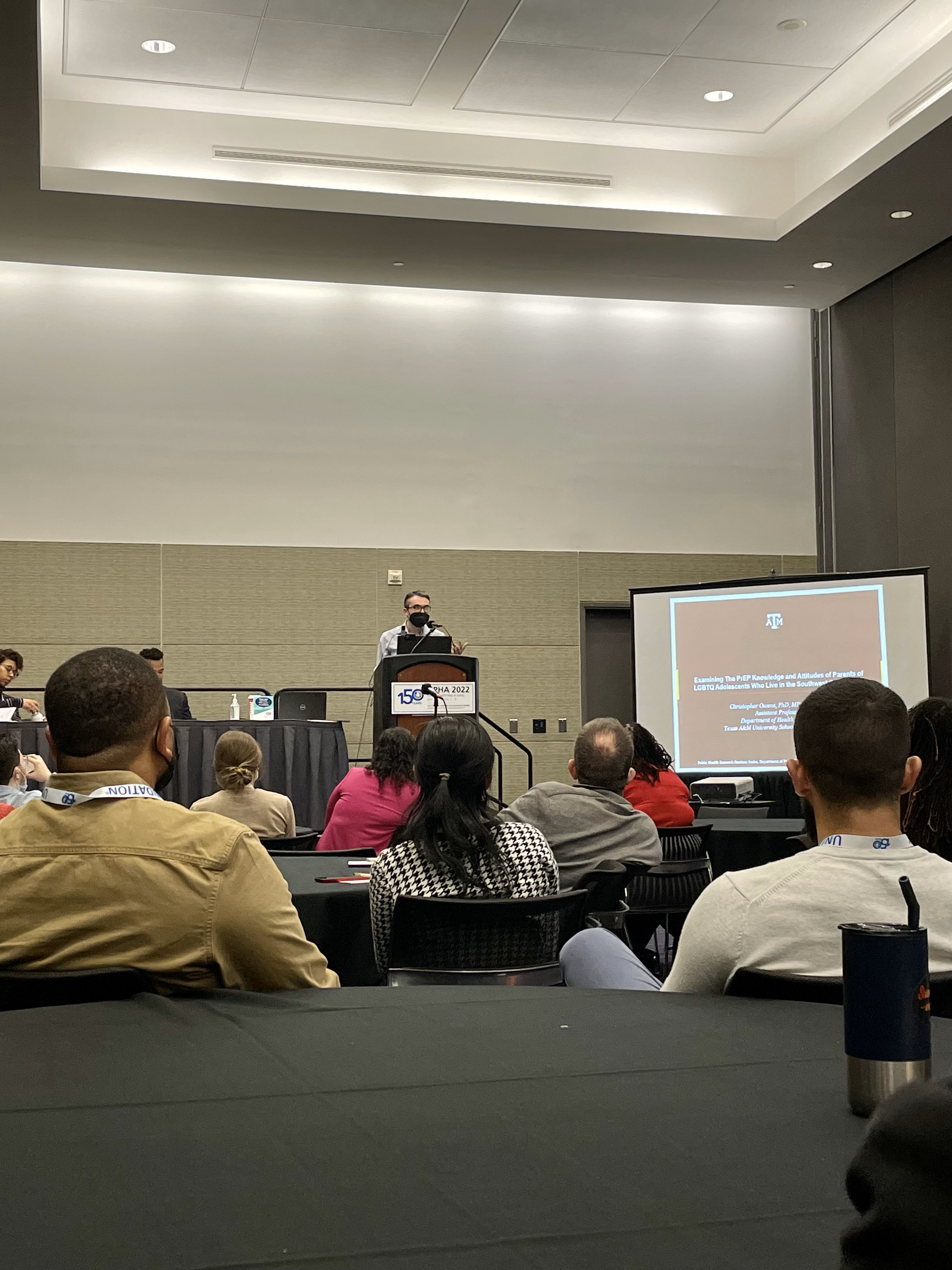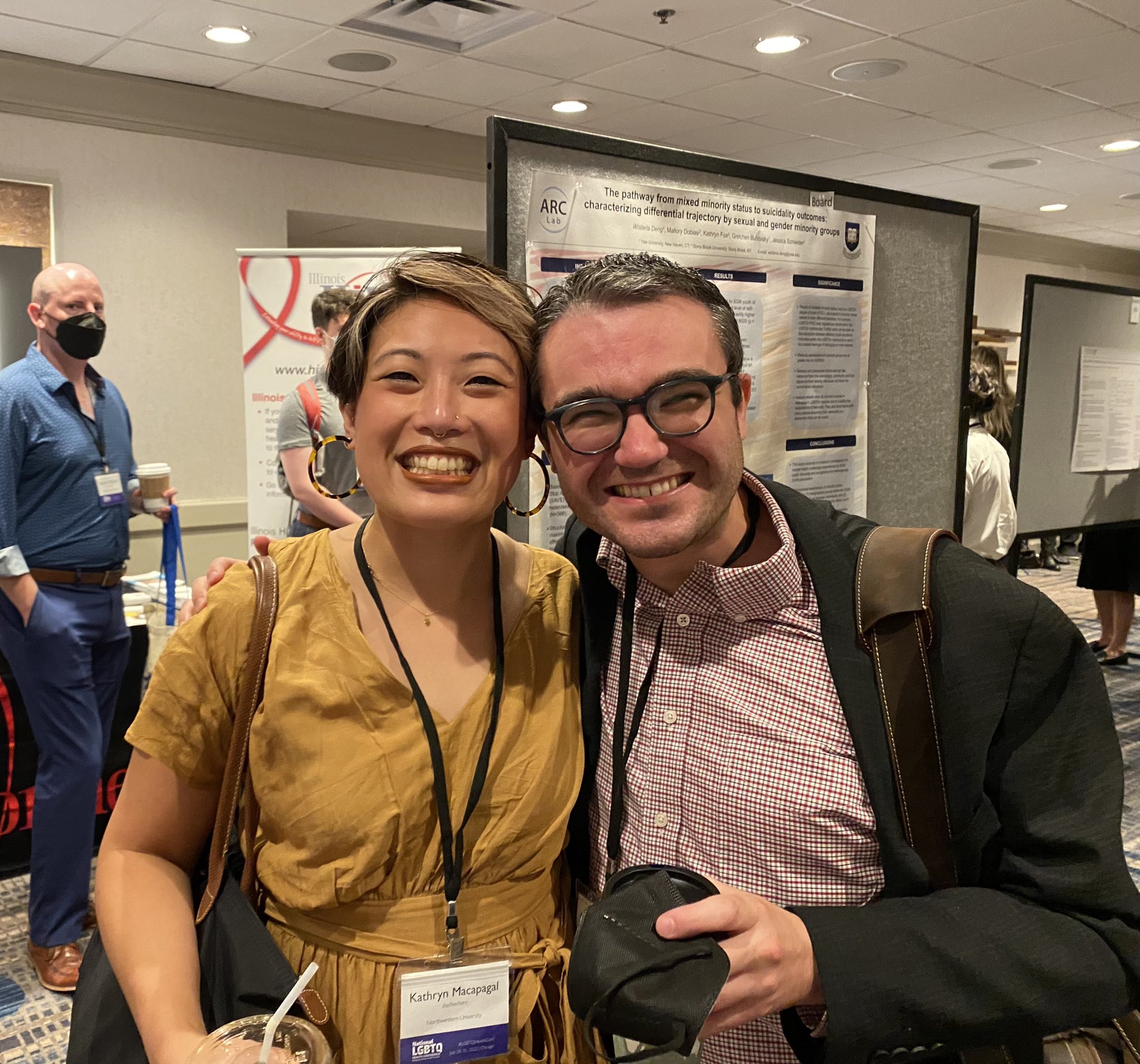We asked CSHP alumni, Dr. Christopher Owens, to share about his experience with us at IU, his research, and his new career as an Assistant Professor at the Texas A&M University School of Public Health. Chris graduated with a PhD in Health Behavior in 2020.
Why did you choose to come to the Center for Sexual Health Promotion?
I had Michael Reece and Brian Dodge as instructors during the MPH Program—who at that time were CSHP faculty. Michael, Brian, and alumni (Randolph Hubach, Phillip Schnarrs, and Joshua Rosenberger) priorly conducted rural HIV and rural sexual health research, and I became more interested in the CSHP and doctoral studies. I feel for sexual health research training, there is no other place to be than CSHP and Indiana University. I was thrilled to have the opportunity to work with CSHP faculty, students, and alumni on translational sexual health research.
What experiences did you value the most during your time with the CSHP?
I felt fortunate to work on NSSHB projects (PIs: Debby Herbenick and Jane Fu) and the National Study of Stigma and Sexual Health (PIs: Brian Dodge and Mark Hatzenbuehler). I acquired knowledge and skills in how to conduct rigorous sexual health survey research. I worked with the community-academic partnership CSHP had with Positive Link. It was wonderful to conduct translational PrEP and HIV care/treatment qualitative research with Positive Link (shoutout to Meredith Short). I still communicate with CSHP faculty and alumni today on projects and mentoring.
Where are you now?
I am an Assistant Professor (tenure-track) in the Department of Health Behavior at the Texas A&M University School of Public Health. I am entering my third year, and I am up for mid-review this spring (Spring 2024). I am a health behavioral scientist who studies rural HIV prevention and care, rural sexual health, and LGBTQ adolescent and young adult sexual health. I feel supported by my colleagues, administrators, and the university to conduct this work.
Why did you choose a career in sexuality education and/or research?
Growing up in a non-urban area, I had firsthand experience of the lack of HIV education and healthcare delivery in my area. This directly impacted my interest in taking an ecological and mixed-method approach to understanding the determinants of rural HIV prevention, testing, and care utilization and delivery from the perspectives of adolescents, young adults, parents, and healthcare providers in rural areas. But, I had no interest in going to graduate school. As a first-generation student, I thought I would only earn my bachelor’s degree. Later, I decided to be a part-time student in the MPH Program while working full-time. Once I got more involved with CSHP, I realized that health behavioral scientist is a profession. And more importantly, sexual health research can be applied or translational to make a real impact on people’s and communities’ lives.
What projects are you currently involved in or excited about?
So many! I am currently working on HIV prevention, testing, and care mhealth preferences, acceptability, and efficacy for rural communities, especially rural LGBTQ populations. My research is going in the direction of HIV, STI, and sexual health mhealth and telehealth. I continue to do HIV implementation science, looking at the implementation determinants of rural primary care providers delivering HIV education, counseling, and other evidence-based services, from sexual history taking to HIV PrEP. I have been advising my students on their projects, from LGBTQ adolescent suicide prevention to bisexual people utilizing mental healthcare services.
What are some key pieces of advice for prospective or current CSHP students?
Big overarching advice is you are in charge of your graduate education, and you get out what you put in. Although I learned a lot during my courses, working with CSHP faculty on projects greatly educated me on sexual health research design, analysis, and publication and grant writing. But, I had to network and ask the faculty how I could contribute to these projects, as well as had to do put my best quality work on these projects, ask clarifying questions, and learn from my mistakes (and you will make mistakes). I think students should reflect on their career and research goals, and what courses and projects can help them reach these goals. But, no one is going to tell you that you should or need to take xxx course, conduct xxx project, or attend xxx method workshop. CSHP faculty are here to mentor and support you, and you need to speak to them about questions or thoughts you have. I am grateful for the research, professional, and career development training I received at CSHP.




